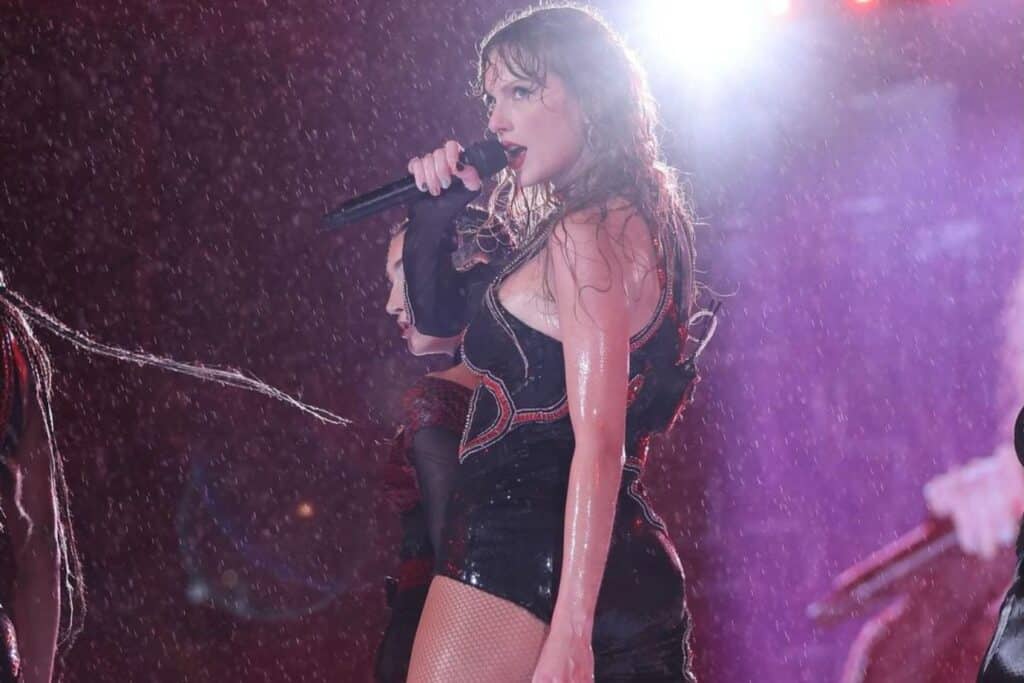Sexually explicit deep fake images of Taylor Swift have been circulated on Elon Musk’s social media platform X, sparking grave concerns over the growth of artificial intelligence (AI).
X Corp. (formerly known as Twitter) responded to the incident on Sunday night by removing the images and the account that first published the deepfakes, as well as temporarily blocking users’ ability to search “Taylor Swift” on the platform.
“This is a temporary action and done with an abundance of caution as we prioritise safety on this issue,” said Joe Benarroch, head of business operations at X.
The pop star’s name is still blocked on X, resulting in an error when trying to search her name.

According to a report from The New York Times, one of the several images that were in circulation was viewed 47 million times before the deepfake, along with the account that published it, was removed from X.
In a news briefing on Friday, White House press secretary Karine Jean-Pierre called on Congress to take legislative action against the abuse and misuse of AI technologies online, but also urged social media platforms to take greater measures to regulate content.
“This is very alarming. And so, we’re going to do what we can to deal with this issue,” Jean-Pierre said.
“We know that lax enforcement disproportionately impacts women and they also impact girls, sadly, who are the overwhelming targets.
“We believe they (the platforms) have an important role to play in enforcing their own rules to prevent the spread of misinformation and non-consensual, intimate imagery of real people.”
The creation and distribution of deepfake AI images has been widely regarded as a form of gender-based violence, as it disproportionately targets women and girls online.
In 2019, a study by Deeptrace, a cyber security company, found 96 per cent of deepfake videos online were of an intimate or sexual nature. The people depicted in the AI-generated content were primarily women actors, musicians and media professionals.
‘Extremely harmful content’
Australia’s eSafety Commissioner Julie Inman Grant spoke to Women’s Agenda, explaining how easy it is to create deepfakes and how devastating it can be for people.
“Deepfakes, especially deepfake pornography, can be devastating to the person whose image is hijacked and altered without their knowledge or consent, no matter who they are,” Commissioner Inman Grant said.
“Image-based abuse, including deepfake porn, is persistent online harm which also represents one of the most egregious invasions of privacy.”
Generative AI is user-friendly and widely accessible to people. Inman Grant said something that would previously have taken large software and computing power to generate now can be generated with a click of a button.
“As a result, it’s becoming harder and harder to tell the difference between what’s real and what’s fake. And it’s much easier to inflict great harm,” Inman Grant said.
Australia’s online safety regulatory body, eSafety, lists the use of AI to create sexually explicit deepfake images as “image-based abuse”. Online users can report image-based abuse on eSafety’s website.
While eSafety has a 90 per cent success rate in getting deepfakes and other abusive material down from online sites, including social media platform X, Commissioner Inman Grant called on the “purveyors and profiteers of AI” to do more.
“We’re not going to regulate or litigate our way out of this – the primary digital safeguards must be embedded at the design phase and throughout the model development and deployment process,” she said.
“And platforms need to be doing much to detect, remove and prevent the spread of this extremely harmful content.”
Earlier this month, the eSafety Commission released a transparency report, revealing massive staff cuts at X Corp around the world.
According to the report, the global Trust and Safety staff was reduced by 30 per cent, while the Trust and Safety staff in the Asia Pacific region, including Australia, had a 45 per cent reduction.
Between November 2022 and May 2023, there were 6,103 previously banned accounts on Twitter that were reinstated on X.
At the time of the report’s release, eSafety commissioner Julie Inman Grant said Elon Musk’s staff cuts at X Corp. had created a “perfect storm” for the platform.
eSafety urges those concerned about the non-consensual sharing of images to report to eSafety at www.esafety.gov.au/Report.


